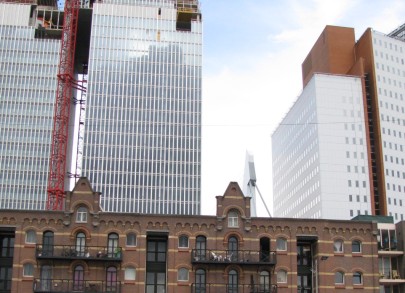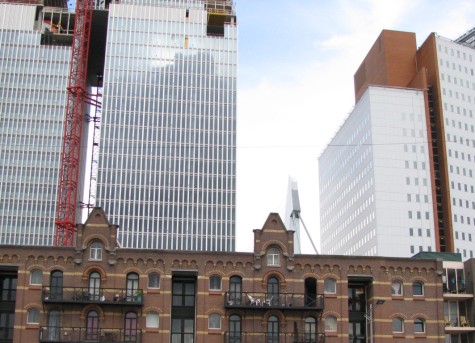Readings in Urban Studies
Presently, cities are undergoing rapid urbanisation, creating challenges and opportunities for innovation for architects and planners. Urban studies can allow us to understand these issues by highlighting different approaches in city-making practices e.g. globalisation, megaprojects, smart city concepts etc. This reading course aims to offer an in-depth knowledge on these issues through active engagement with key debates in urban development and planning.Students will be working with 8 selected readings throughout the semester. Five individual consultation sessions will be offered to guide them to prepare a short presentation analysing the debates in the texts at the end of semester.On completion of this course, students should be able to feel more confident with academic texts, easily engage with diverse urban topics, and learn through critical feedback sessions.
Language: English
Lecturers: PD Dr.-Ing. Nebojsa Camprag, Dr.-Ing. Anshika Suri
TUCAN: 15-02-6531 (WF), 3 CPs
Time: Tue 10.30 – 12.00 (1x/month)
Start: 26. Oct 2021 (online)
Gender in the City
Gender is built into the cities we inhabit. Gendered identities can be seen in the design of homes and workplaces, layout of neighbourhoods, and the modes of transportation. However, gender remains a neglected focus within theory and practice that is shaping cities (Beebeejaun, 2017), with most urban design and planning activity being evidently gender-blind (Rakodi, 1991). Architects and Planners rarely recognize that the needs and experiences of users differ based on gender identities. Thus, how gender identities linked to topics about the– city, who can use urban spaces without fear and who benefits from the opportunities of urban life–are questions that lie at the heart of this course. We will explore how gender shapes everyday interactions and experiences of urban– public space, built environment and infrastructures. Students will begin the course with a readings on the debates and themes in gendered approaches in urban design and planning. In the process, we will build a set of conceptual tools to analyse urban processes in various global regions through readings, class discussions, films, graphics, etc. Next, the course will focus specifically on a case study analysis of our everyday environment, with the students individually/groups examining key public infrastructures in cities. Finally, based on the conceptual tools discussed in class, the students will give a presentation of their findings and analysis of gendered usage of space in urban everyday life.
Language: English
Lecturer: Dr.-Ing. Anshika Suri
TUCAN: 15-02-6541 (WF), 3 CPs
Time: Tue 10.00 – 11.30(once every 2 weeks)
Start: 19. Oct 2021 (online)
Urban Transformation & City Imagineering
Enormous public-private investments in mega-events, high-profile mega-projects, and 'creative' or 'cultural' districts were until recently a key feature of contemporary urban policies in many big cities. Similarly, city marketing, place branding and urban tourism strategies which build upon culture, heritage and consumption to promote cities as attractive and vibrant places to live, work, invest, visit and consume in, were equally a common feature of urban development practices and patterns in cities around the world. These phenomena occurred not only in advanced capitalist industrial and post-industrial countries, but also in other countries around the world.The course on urban transformation and city Imagineering will provide a critical perspective to the emergence, characteristics, causes, impacts, and transformations of such consumption and culture-led approaches in cities today. The course will introduce students to the scholarly perspective on this matter. Through a number of international case studies, addressed in lectures, documentary films, readings and group discussions, students will be encouraged to think critically about the pros and cons of utilizing culture and consumption, as well as marketing and branding for urban economic and social development.
Language: English
Lecturers: PD Dr.-Ing. Nebojsa Camprag
TUCAN: 15-02-6526-se (WF), 3 CPs
Time: Thu 10.30 – 12.00(once every 2 weeks)
Start: 21. Oct 2021 (online)








